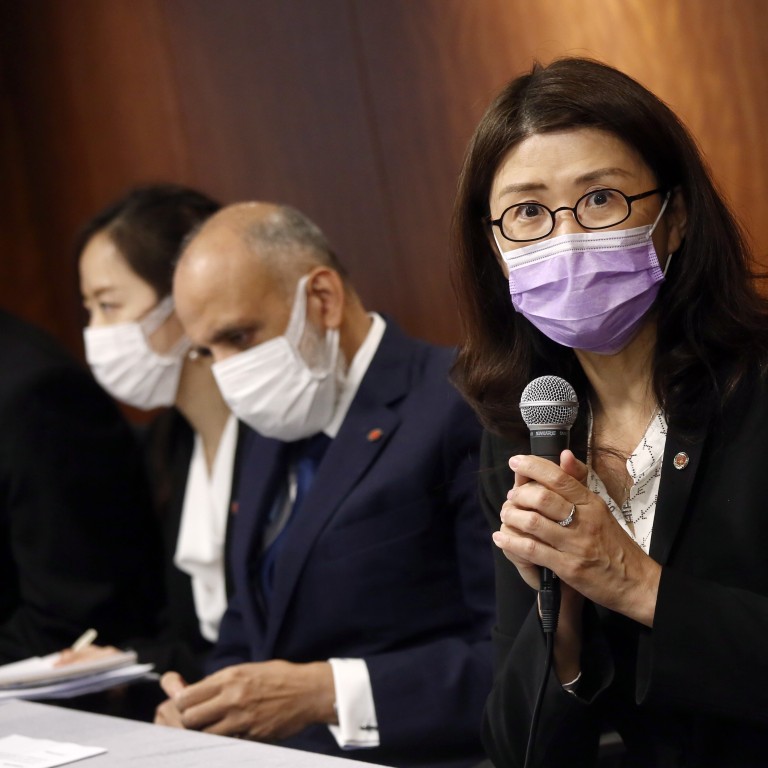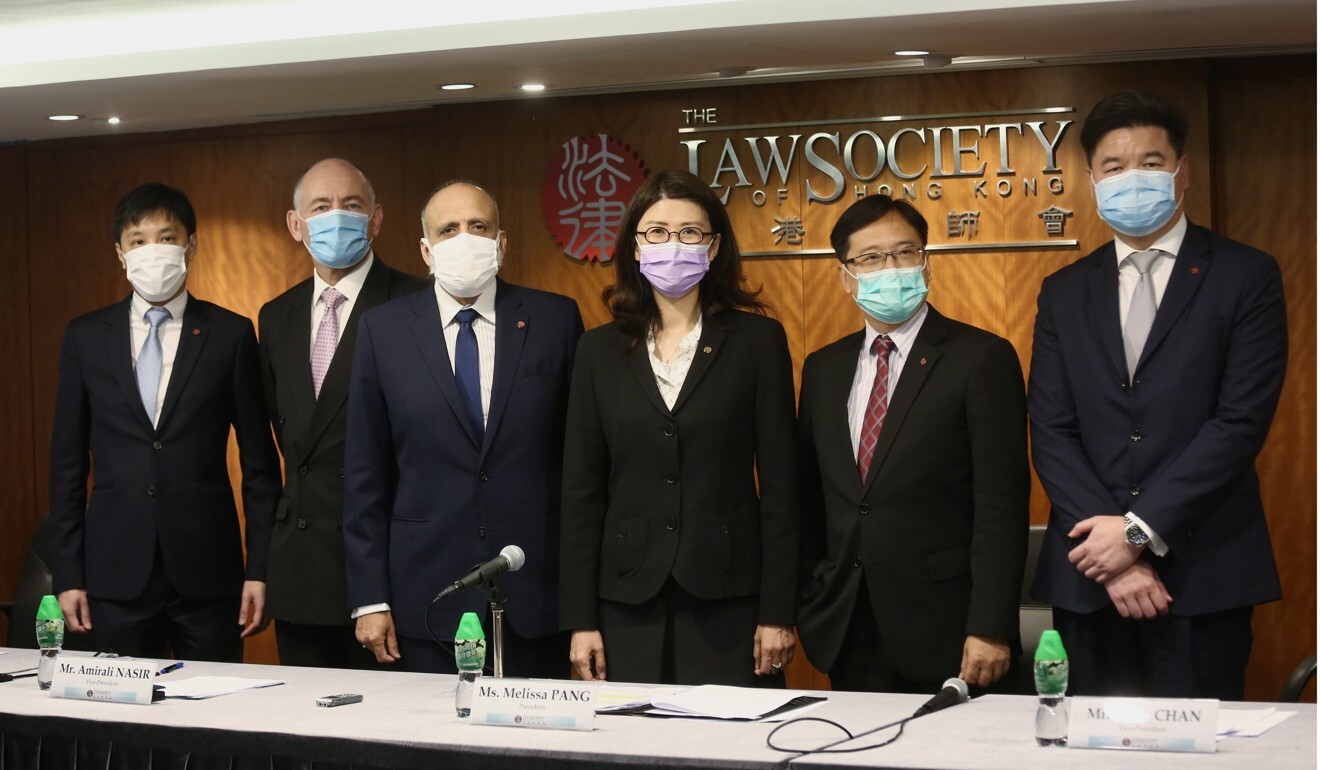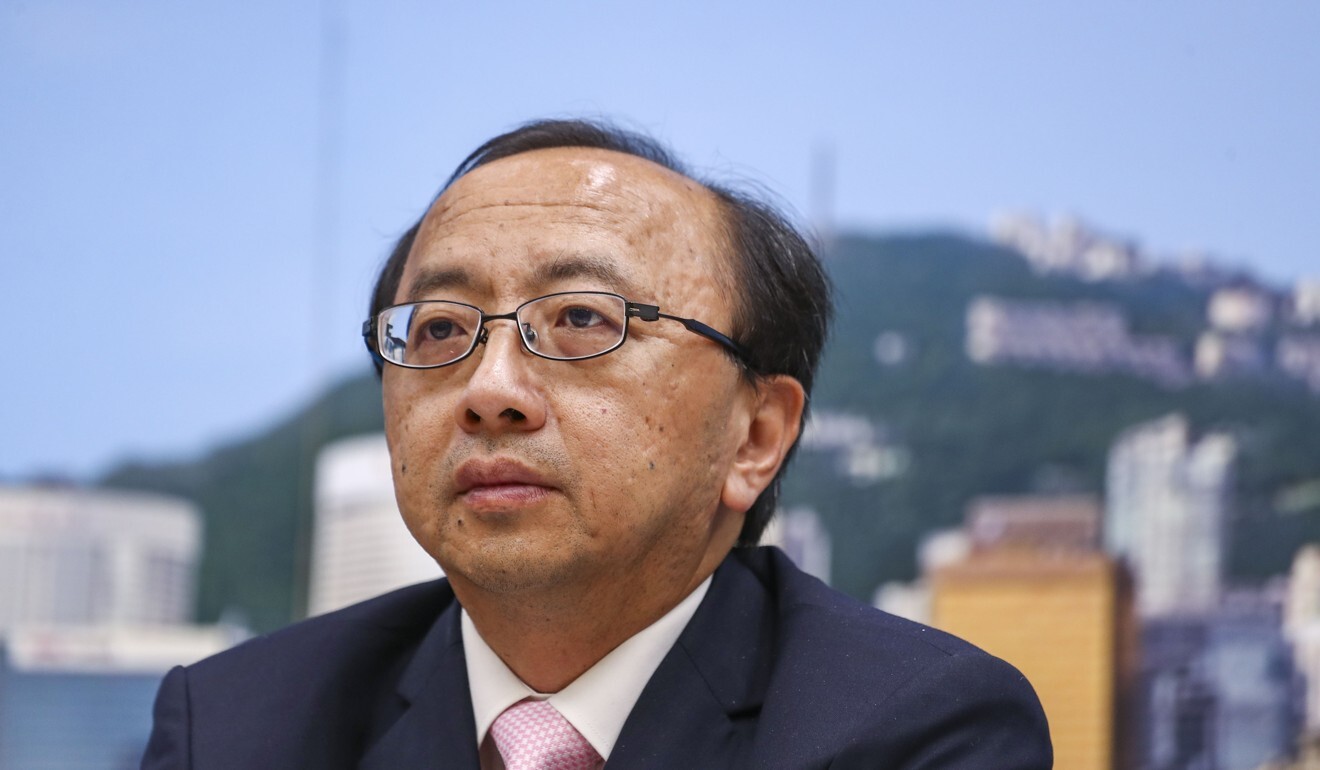
Hong Kong Law Society chief defends controversial decision to back certain candidates in polarised governing council election
- Melissa Kaye Pang insists she was only expressing her views in a personal capacity when she rallied support for five candidates
- Results of election at the end of the month could determine whether the body becomes more outspoken on city’s autonomy and rule of law
The head of the Hong Kong Law Society has defended her contentious decision to back certain candidates in one of the body’s most polarised elections in recent years, saying she was merely exercising her freedom of expression.
Melissa Kaye Pang’s remarks on Thursday came against a backdrop of heated competition for spots on the governing council of the professional body for solicitors.
It was earlier revealed that society president Pang had privately rallied support – a move critics said deviated from tradition – for five candidates running on one ticket as she called on fellow lawyers to help the body remain “apolitical”.
In a rare press conference, Pang, flanked by her three deputies and two other council members, insisted she was only expressing her views in a personal capacity.

“I personally am very concerned about the election, just like each of my council members … I absolutely should have my freedom of expression,” she said, without giving her reasons for supporting the five. “If we deprive people of such rights, this is most regrettable and disheartening.”
Pang also rejected claims there was a conflict of interest in backing candidates, who if elected would have a vote on choosing the next president from among those on the governing council.
Five seats on the 20-member council are up for grabs, with more than 10,000 practising lawyers eligible to cast their votes on May 28.
Lawyers are struggling too, says barristers’ group as Covid-19 shuts courts
Pang’s preferred candidates – Warren Ganesh, Simon McConnell, Robert Rhoda, Olivia Kung, and Cynthia Yen – are running against another ticket perceived as more liberal and led by human rights lawyer Kenneth Lam.
Those on Lam’s list are Davyd Wong, Michelle Tsoi Wing-tak, George Chan Ka-ho and Civic Party member Janet Pang Ho-yan.
Lam, Pang and Tsoi served as volunteer lawyers for protesters arrested during the anti-government demonstrations sparked by the now-withdrawn extradition bill last year.
Melissa Pang reiterated that the society was “colour-blind” politically, while vice-president Brian Gilchrist, who also attended the press conference, stressed that political activism should play no role in the body’s matters.
Former society president Michael Lintern-Smith said he was not aware of the convention that presidents should not express views on election candidates.
Criminal lawyer opens up on resignation over Hong Kong protest violence
Veteran criminal lawyer Colin Cohen, however, said it was best for the president to remain neutral in elections, especially at a time when the society was becoming ever more polarised.
“If I were the president, I would have remained neutral, which has been the past practice,” Cohen said.
The society later said in a statement that it did not endorse any of the candidates, although presidents were “entitled to hold personal views” on the suitability and calibre of those running, express preferences and exercise discretion to vote in the election.
But legal scholar Eric Cheung Tat-ming, who was elected to the governing council in June 2018 and is seen as a liberal, hinted that there were dissenting views on issuing the statement. He declined to comment on the president’s remarks.

The society has traditionally been less progressive in weighing in on political debates compared with the Bar Association, the professional body for barristers, which has become even more vocal on constitutional and human rights issues since incumbent chairman Philip Dykes was elected in 2018.
Unlike the association, the Law Society has maintained good relations with mainland Chinese authorities and legal bodies, and regularly visited government ministries in Beijing.
Those on Lam’s ticket were pushing for the society to be more vocal on various social issues and had advocated for direct election of the president in future elections.
Police watchdog report into force’s handling of Hong Kong protests ‘due in days’
“We just want to bring a more balanced voice to the committee,” Lam said.
Janet Pang added: “The Law Society in the past, especially when Hong Kong was experiencing a seismic shift arising from the extradition bill, which also led to a wider movement, has not been firm enough in defending the rule of law.
“The rule of law we are talking about is that the power of the government has to be restrained and everyone is equal before the law, including government officials and policemen.”
The Post has contacted the side endorsed by Pang for comment.
Help us understand what you are interested in so that we can improve SCMP and provide a better experience for you. We would like to invite you to take this five-minute survey on how you engage with SCMP and the news.


